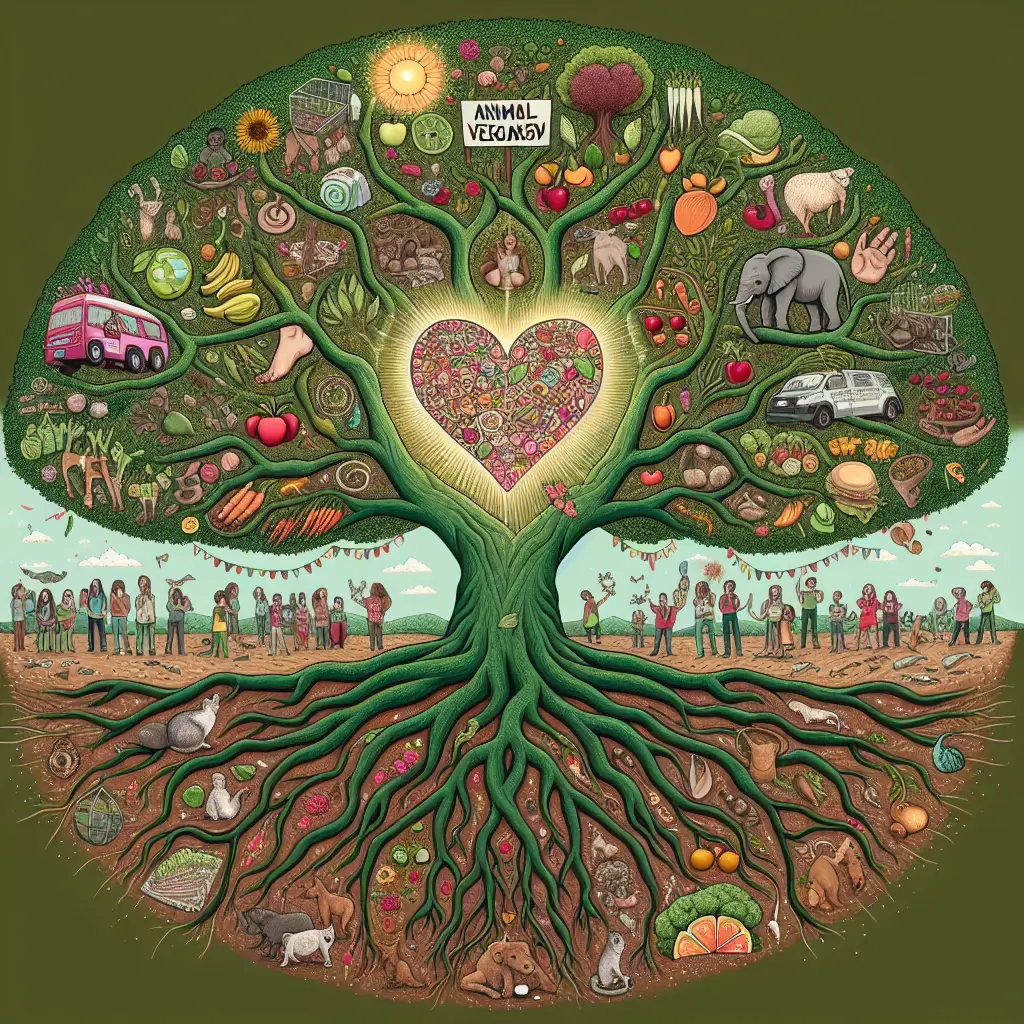
In recent years, the rise of veganism has not just been a dietary trend but a profound shift towards ethical vegan and cruelty-free living. This movement intertwines deeply with animal rights, advocating for a compassionate lifestyle that refuses to partake in animal cruelty. Through exploring various facets of veganism and its impacts, from the health benefits of a plant-based diet to the ethical treatment of animals and the environmental repercussions, we uncover a comprehensive view of this growing phenomenon.
The New Faces of Vegan Strength
Contrary to outdated stereotypes that paint vegans as frail or weak, a new wave of vegan powerlifters and athletes are smashing these misconceptions. Figures like those in recent features, showcasing jacked vegan powerlifters, highlight how a plant-based diet can fuel high-level athletic performance. These individuals are not only redefining physical norms but are also pivotal in vegan activism, demonstrating that muscle strength can be achieved without animal products (Source). Their visibility helps shift attitudes about what vegans can look like, proving that a vegan diet benefits encompass far more than just health; they empower ethical and physical prowess.
The Radical Roots and Modern Impacts of Veganism
Veganism, often seen as radical, is essential in pushing societal boundaries to reconsider our ethics concerning animal welfare. Historical contexts reveal that animal rights activists in the 19th century were characterized by their moxie – a bold force for societal change (Source). Today’s vegan movement continues this legacy, tackling issues from animal law and policy to promoting a sustainable veganism that lessens our environmental impact. The radical nature of veganism challenges the status quo, encouraging a global rethinking of how we interact with other living beings.
Adaptation by Brands to Plant-Based Preferences
As more people adopt a vegan lifestyle, brands across the globe are responding by revolutionizing their offerings to include more vegan food choices. This adaptation is not just about offering alternatives but is a testament to the growing acknowledgment of vegan ethics in mainstream consumerism. From fast food chains to high-end restaurants, the food industry is reinventing itself to cater to this ethical shift, underscoring the significance of consumer choices in driving corporate change (Source).
The Surprising Health Benefits of a Vegan Diet
Recent studies have illuminated some remarkable health advantages associated with vegan diets, including a study revealing that an eight-week plant-based diet could reduce biological age by approximately 7.5 months (Source). This finding adds to a growing body of research that aligns vegan diet benefits with longevity and reduced health risks. Vegan health benefits extend beyond weight management or cardiovascular health, pointing towards an effective strategy for aging healthily.
Cultural Impacts and Societal Shifts
The journey towards widespread acceptance and understanding of veganism is filled with cultural narratives and conflicts. For instance, incidents like the two wandering cows that started a culture war provide insight into how deeply ingrained animal products are in our societal fabric and how challenging yet crucial the dialogue around animal liberation is (Source). These stories help illuminate the tensions and opportunities within the animal rights movement.
The Challenge of Labels and Identity in Veganism
The decision to adopt or give up the label of 'vegan' or 'vegetarian' can be profoundly personal and complex. It involves navigating identity, community, ethics, and sometimes backlash from within and outside the vegan community. This aspect of vegan ethics explores the inclusivity and exclusivity of labels, urging a more compassionate approach towards everyone on their own path to reducing animal cruelty (Source).
Conclusion
Veganism is more than a dietary choice; it's a lifestyle committed to ethical principles promoting animal rights, compassionate living, and cruelty-free living. Its benefits span from personal health gains to broader environmental impacts, advocating for sustainable veganism. The movement continues to evolve, driven by passionate individuals and a supportive community challenging old paradigms and embracing new possibilities.
As we reflect on these insights, it's clear that embracing veganism can be a powerful step towards a more ethical, healthy, and sustainable life. Whether through choosing vegan food options, supporting animal welfare legislation, or engaging in vegan activism, every action counts towards a more humane world.
With compassion and determination,
Lucas Sheridan